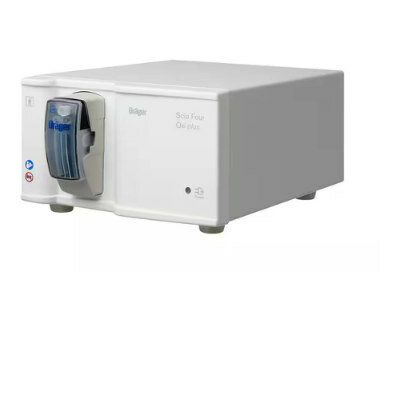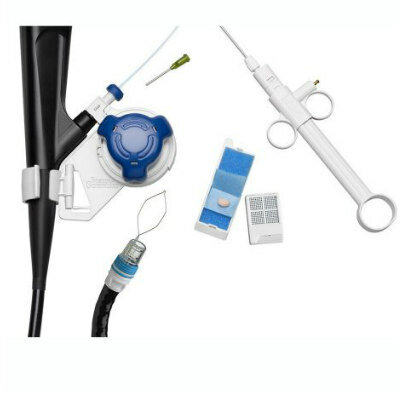Ibuprofen May Prevent Atrial Fibrillation after Surgery
|
By HospiMedica staff writers Posted on 14 Nov 2000 |
New research indicates that atrial fibrillation following open-heart surgery may be due to inflammation, and may be prevented by applying an anti-inflammatory drug such as ibuprofen topically to the heart during surgery.
Atrial fibrillation affects around 40% of all U.S. patients who undergo coronary artery bypass graft procedures or heart valve surgery, according to Adam E. Saltman, M.D., assistant professor of surgery and physiology, State University of New York at Stony Brook (USA). Dr. Saltman suspected that inflammation played a role in the development of postoperative atrial fibrillation because the timing of arrhythmia coincides with the peak inflammatory period following surgery. He tested his hypothesis in an animal model of the cardiac inflammatory reaction. In his study, untreated animals had significantly faster electric conduction velocities in heart muscles than animals that received topical ibuprofen, which had no sustained arrhythmias.
Before proceeding to clinical trials, Dr. Saltman will be experimenting with isolated cardiac tissue to determine whether inflammation alters the electrical properties of the heart or deranges cell-to-cell connections in heart muscle. He will also be exploring the effects of aging on heart muscle. Dr. Saltman presented his study at the annual Clinical Congress of the American College of Surgeons in Chicago (Il, USA). "Ibuprofen is a drug we're comfortable with in the medical world. Therefore, it should be safe to apply it to the surface of the heart, provided that surface is sterile,” he concluded.
Atrial fibrillation affects around 40% of all U.S. patients who undergo coronary artery bypass graft procedures or heart valve surgery, according to Adam E. Saltman, M.D., assistant professor of surgery and physiology, State University of New York at Stony Brook (USA). Dr. Saltman suspected that inflammation played a role in the development of postoperative atrial fibrillation because the timing of arrhythmia coincides with the peak inflammatory period following surgery. He tested his hypothesis in an animal model of the cardiac inflammatory reaction. In his study, untreated animals had significantly faster electric conduction velocities in heart muscles than animals that received topical ibuprofen, which had no sustained arrhythmias.
Before proceeding to clinical trials, Dr. Saltman will be experimenting with isolated cardiac tissue to determine whether inflammation alters the electrical properties of the heart or deranges cell-to-cell connections in heart muscle. He will also be exploring the effects of aging on heart muscle. Dr. Saltman presented his study at the annual Clinical Congress of the American College of Surgeons in Chicago (Il, USA). "Ibuprofen is a drug we're comfortable with in the medical world. Therefore, it should be safe to apply it to the surface of the heart, provided that surface is sterile,” he concluded.
Latest Critical Care News
- AI Model Analyzes Patient Data to Diagnose Multiple Sclerosis With 90% Accuracy
- Magnetically Navigable Microparticles Enable Targeted Drug Delivery
- AI-Powered Algorithm Automates Analysis of Coronary Stents After Implantation
- New Stroke Risk Scoring System to Help Avoid Unnecessary Surgeries
- Wearable Device Tracks Individual Cells in Bloodstream in Real Time
- Drug Delivery System Uses Ultrasound-Activated Nanoparticles to Destroy Bacterial Biofilms
- New Potent Injectable Therapy Could Prevent Heart Failure After Heart Attack
- Hospital-Based System Combines AI and Genomic Surveillance to Quickly Detect Infectious Disease Outbreaks
- New Approach to Visualizing Blood Pressure Data Can Help Better Manage Hypertension Patients
- Breakthrough AI Technology Accurately Assesses Heart Failure Severity
- Smart Bandage Monitors Chronic Wounds in Human Patients
- AI Identifies Patients with Increased Lung Cancer Risk Up To 4 Months Earlier
- Next Gen Hemodynamic Monitoring Solution Provides AI-Driven Clinical Decision Support
- AI Algorithm Identifies High-Risk Heart Patients
- Wearable Glucose Monitor Offers Less Invasive Approach to Assessing Diabetes Risk
- Wireless, Self-Powered Smart Insole to Improve Personal Health Monitoring
Channels
Surgical Techniques
view channel
DNA Origami Improves Imaging of Dense Pancreatic Tissue for Cancer Detection and Treatment
One of the challenges of fighting pancreatic cancer is finding ways to penetrate the organ’s dense tissue to define the margins between malignant and normal tissue. Now, a new study uses DNA origami structures... Read more
Pioneering Sutureless Coronary Bypass Technology to Eliminate Open-Chest Procedures
In patients with coronary artery disease, certain blood vessels may be narrowed or blocked, requiring a stent or a bypass (also known as diversion) to restore blood flow to the heart. Bypass surgeries... Read more
Intravascular Imaging for Guiding Stent Implantation Ensures Safer Stenting Procedures
Patients diagnosed with coronary artery disease, which is caused by plaque accumulation within the arteries leading to chest pain, shortness of breath, and potential heart attacks, frequently undergo percutaneous... Read more
World's First AI Surgical Guidance Platform Allows Surgeons to Measure Success in Real-Time
Surgeons have always faced challenges in measuring their progress toward surgical goals during procedures. Traditionally, obtaining measurements required stepping out of the sterile environment to perform... Read morePatient Care
view channel
Portable Biosensor Platform to Reduce Hospital-Acquired Infections
Approximately 4 million patients in the European Union acquire healthcare-associated infections (HAIs) or nosocomial infections each year, with around 37,000 deaths directly resulting from these infections,... Read moreFirst-Of-Its-Kind Portable Germicidal Light Technology Disinfects High-Touch Clinical Surfaces in Seconds
Reducing healthcare-acquired infections (HAIs) remains a pressing issue within global healthcare systems. In the United States alone, 1.7 million patients contract HAIs annually, leading to approximately... Read more
Surgical Capacity Optimization Solution Helps Hospitals Boost OR Utilization
An innovative solution has the capability to transform surgical capacity utilization by targeting the root cause of surgical block time inefficiencies. Fujitsu Limited’s (Tokyo, Japan) Surgical Capacity... Read more
Game-Changing Innovation in Surgical Instrument Sterilization Significantly Improves OR Throughput
A groundbreaking innovation enables hospitals to significantly improve instrument processing time and throughput in operating rooms (ORs) and sterile processing departments. Turbett Surgical, Inc.... Read moreHealth IT
view channel
Printable Molecule-Selective Nanoparticles Enable Mass Production of Wearable Biosensors
The future of medicine is likely to focus on the personalization of healthcare—understanding exactly what an individual requires and delivering the appropriate combination of nutrients, metabolites, and... Read more
Smartwatches Could Detect Congestive Heart Failure
Diagnosing congestive heart failure (CHF) typically requires expensive and time-consuming imaging techniques like echocardiography, also known as cardiac ultrasound. Previously, detecting CHF by analyzing... Read moreBusiness
view channel
Expanded Collaboration to Transform OR Technology Through AI and Automation
The expansion of an existing collaboration between three leading companies aims to develop artificial intelligence (AI)-driven solutions for smart operating rooms with sophisticated monitoring and automation.... Read more















